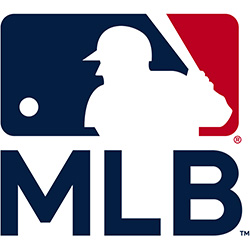 Encouraged to move forward 18 attorneys generalTHE Supreme Court of the United States could try again to re-evaluate MLB Antitrust Exemption in a case filed by the Tri-City ValleyChats and the Norwich Sea Unicorns after both teams and much of the NY-Penn League were expelled from affiliated ranks in 2020.
Encouraged to move forward 18 attorneys generalTHE Supreme Court of the United States could try again to re-evaluate MLB Antitrust Exemption in a case filed by the Tri-City ValleyChats and the Norwich Sea Unicorns after both teams and much of the NY-Penn League were expelled from affiliated ranks in 2020.
The civil complaint, filed by David Lender (of Weil, Gotshal & Manges LLP) and Jim Quinn (Berg & Androphy, formerly of Weil) in the U.S. District Court for the Southern District of New York in 2021, argues that MLB has overstepped its bounds by eliminating affiliations with 40 MiLB teams, considering it an “illegal group boycott” and acting in an uncompetitive manner: “The buyout plan is nothing more than a naked, horizontal agreement for consolidate MLB’s dominance over all professional baseball and to reduce production and boycott professional baseball. 40 teams excluded from MLB affiliation.
The complaint also argues that MLB should not have unilaterally decided which teams were part of the new 120, but allowed the free market to allow teams to bid to remain in the MiLB while complying with state antitrust laws . He also singles out teams owned by MLB teams and MiLB teams with significant investment in MLB and criticizes the Supreme Court’s decision to also block enforcement of state antitrust laws. At the time, the political argument of the MLB was that the creation of the MLB Draft League (then known as the Dream League) was a suitable alternative to affiliation and that MLB’s takeover was due to MiLB’s refusal to resolve facility issues..
The ValleyCats found themselves in the MLB Partner League Frontier League, while the Sea Unicorns found themselves in the Summer Collegiate Futures League. Many, but not all, NY-Penn League teams were eliminated from the affiliate ranks, along with the entire Frontier League. There is no doubt that membership losses have resulted in a very measurable decrease in team value.
Challenging MLB’s antitrust exemption is not an uncommon effort in the U.S. legal system, and even reaching the U.S. Supreme Court would be a triumph. We have seen such efforts rebuffed as recently as 2018 And 2015, but opponents have been fighting for its overturn since 1922, when the court initially ruled that baseball was entertainment, not interstate commerce. This decision was upheld in court decisions in 1953 and 1972; the 1972 case involving Curt Flood’s attempt to overturn MLB’s reserve clause was initially decided against Flood, but subsequent mediation eliminated the reserve clause, leaving the antitrust exemption intact.
On the one hand, this challenge is different: It is now supported by 18 attorneys general who have filed amicus briefs urging the court to hear arguments on the suit. They raise a variety of issues, ranging from states’ rights (a topic surely popular among current members of the Supreme Court) to lack of direction from Congress regarding antitrust laws (much of the status quo stems from the original 1922 case , although Congress has addressed the issue). subject in the Curt Flood Act of 1998).
Joining the effort this week: New York Attorney General Letitia James, whose state saw four teams (Auburn, Batavia, Staten Island and Tri-City) lose their affiliations. Also signing the amicus brief: the attorneys general of Arizona, Colorado, Connecticut, Indiana, Kansas, Louisiana, Massachusetts, Minnesota, Montana, New Jersey, New Mexico, Pennsylvania, Tennessee, Vermont, Virginia, West Virginia and the District of Columbia. Not every state has seen teams contract — ironically, Minnesota AG Keith Ellison signed the amicus brief despite the fact that his state’s only MiLB team, the St. Paul Saints, benefits from the contraction and reorganization of the MLB.
“Baseball may be ‘America’s pastime,’ but it should also be subject to America’s laws that govern monopolies,” James said in a press release. “Minor League clubs are part of the fabric of hundreds of communities across the country that do not have close access to a Major League Baseball stadium. By excluding these clubs from the system, Major League Baseball is punishing fans and local communities. I’m proud to join this bipartisan coalition of attorneys general to protect these minor league teams and allow millions of Americans to go to their local soccer game.
RELATED STORIES: Four former MiLB teams challenge MLB antitrust exemption in U.S. District Court; Supreme Court once again refuses to overturn MLB’s antitrust exemption;
Supreme Court: No review of MLB antitrust exemption; Could the Supreme Court pass an antitrust exemption for MLB?; Bunning: Cubs’ best argument for eliminating MLB’s antitrust exemption; Appeals court speeds up San Jose antitrust trial

